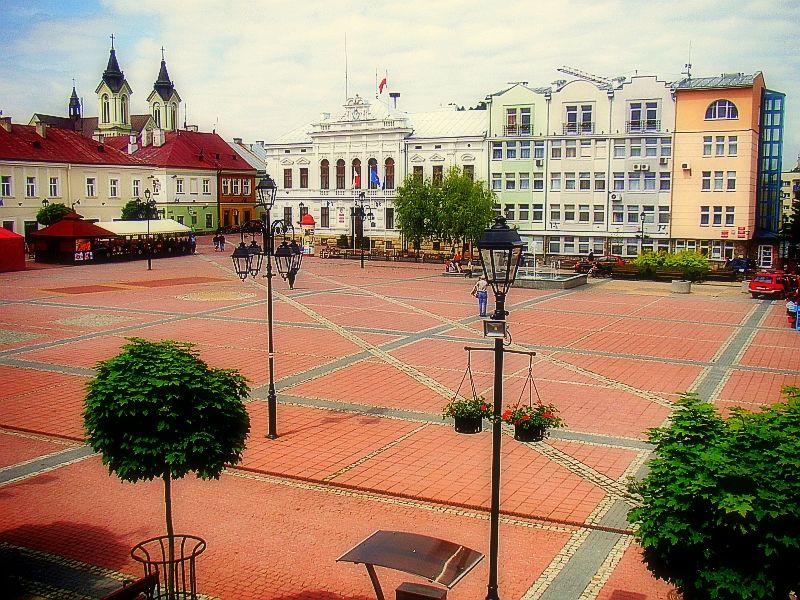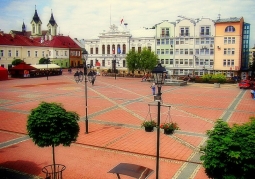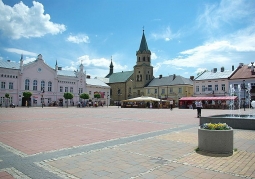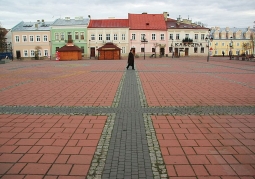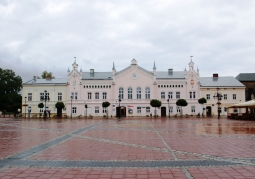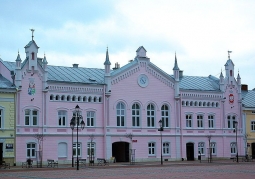Old Town Square - Sanok
No weather data
0.0 /5
Number of ratings: 0
The Sanok market was established by the Austrian authorities after the city was rebuilt in 1786. The original market development plan was created in the second half of XIV century during the location of the city in 1339. For several centuries, the market served economic and military purposes. Every Wednesday and Friday, fairs and annual fairs were held there. The tenements surrounding the Sanok market, which survived to this day, were built at the end of the 18th and the beginning of the 19th century. In the 19th century, the market in Sanok was called Plac Misjonalny. During World War II, during the German occupation, the square was renamed Adolf Hitler Platz. In the period of the Polish People's Republic until 1989, the name October Revolution Square was widespread. In 1989, the Municipal National Council in Sanok decided that it would stick to the simple name "Market Square". Within the Market Square, including Rynek Street, there are buildings considered historic, entered in the list of monuments kept by the Provincial Conservators of Monuments.
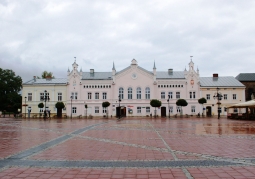
Old Town Hall
Category: Tenement housesIn the past, the building was the seat of the town hall in Sanok. The building represents the style of electricity, it served as the town hall until the end of the 18th century, it is located in the eastern frontage of...
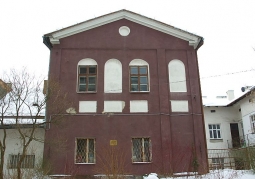
Small Synagogue
Category: SynagoguesThe synagogue also called Klaus Sadogóra, Sadygierer klojz, Sadogórska or the House of Prayer. The temple was built in 1924 on the initiative of Hasidim from Sadagóra. The building survived World War II without major...
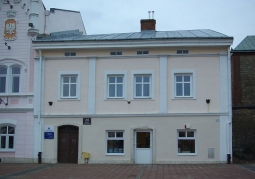
Borczykówka Tenement House
Category: Tenement housesIt is located on the eastern frontage of the Market Square, Władysław Szombara once lived with his family. Before the First World War, there was a currency exchange office of the Vienna Bank, and until 1939 the Lviv...
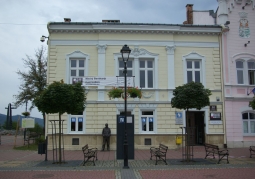
Goldhammer's Tenement House
Category: Tenement housesThe original owner of the tenement at the beginning of the 20th century was Dr. Artur Goldhammer. The building is located on the eastern frontage of the Market Square. The right side adjoins the town hall at ul. Rynek...
Komentarze
No results
Nearby places
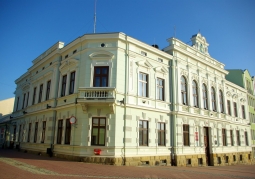
Town Hall - Old Town Square - Sanok
Category: Tenement housesThe building in the electric style just like the original building of the Sanok town hall. It was built in 1875-1880 by the Austro-Hungarian authorities as the seat of the Poviat Council. In October 1895, an emblem...
1 km

Old Town Hall - Old Town Square - Sanok
Category: Tenement housesIn the past, the building was the seat of the town hall in Sanok. The building represents the style of electricity, it served as the town hall until the end of the 18th century, it is located in the eastern frontage of...
1 km

Small Synagogue - Old Town Square - Sanok
Category: SynagoguesThe synagogue also called Klaus Sadogóra, Sadygierer klojz, Sadogórska or the House of Prayer. The temple was built in 1924 on the initiative of Hasidim from Sadagóra. The building survived World War II without major...
1 km

Goldhammer's Tenement House - Old Town Square - Sanok
Category: Tenement housesThe original owner of the tenement at the beginning of the 20th century was Dr. Artur Goldhammer. The building is located on the eastern frontage of the Market Square. The right side adjoins the town hall at ul. Rynek...
1 km
Nearby places

Town Hall - Old Town Square - Sanok
Category: Tenement housesThe building in the electric style just like the original building of the Sanok town hall. It was built in 1875-1880 by the Austro-Hungarian authorities as the seat of the Poviat Council. In October 1895, an emblem...
1 km

Old Town Hall - Old Town Square - Sanok
Category: Tenement housesIn the past, the building was the seat of the town hall in Sanok. The building represents the style of electricity, it served as the town hall until the end of the 18th century, it is located in the eastern frontage of...
1 km

Small Synagogue - Old Town Square - Sanok
Category: SynagoguesThe synagogue also called Klaus Sadogóra, Sadygierer klojz, Sadogórska or the House of Prayer. The temple was built in 1924 on the initiative of Hasidim from Sadagóra. The building survived World War II without major...
1 km

Goldhammer's Tenement House - Old Town Square - Sanok
Category: Tenement housesThe original owner of the tenement at the beginning of the 20th century was Dr. Artur Goldhammer. The building is located on the eastern frontage of the Market Square. The right side adjoins the town hall at ul. Rynek...
1 km
